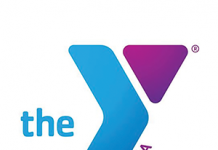The crowd cheered, whistled, and yelled as Hazel Ericson clicked her drumsticks together and counted off for her band, The Quadrants. The room was dark but for the purple lights illuminating the stage. The guitars layered in and the all-girl band began to sing:
тThere was a girl who conquered the world/she was inspired by other girls/she knew she had mountains to climb/she left her insecurities behind тІ donтt listen to the haters and liars, just be yourself/if you do, others will be inspired/so just do you.т
Hazel is only 12 years old, but for that Saturday afternoon, she was a female rock тnт roll legend.
She was one of 25 girls who participated in the inaugural Girls Rock Detroit camp that took place this past July.
The camp taught girls ages 8 to 14 how to play guitar, drums, bass, keyboard, and use a DJ track. It also taught them how to create their own band merchandise, introduced them to women musicians, and provided lessons in songwriting.
Hazel says the first time her band played their song correctly, she was so happy and flabbergasted because she felt like she was really doing something.
But more important than the sense of accomplishment after playing a song was the empowerment the young girls felt by the end of the weeklong camp.
тWe had a workshop about gender roles and how you donтt always have to be a certain way,т Hazel says. тThey told us to make a list of things that girls and boys are supposed to do [and] the girlтs side had a lot of makeup and glamour and the boyтs side was sports and athletics. Then they told us you donтt always have to be that way. You can be yourself and be whoever you feel you are.т
Nichole Welz, Hazelтs mother, says that while the typical school year offers the core academic curriculum, it lacks an opportunity to encourage expression and individuality. She says the camp filled that gap for her daughter, and it was especially inspiring to see young girls express themselves with confidence during the end-of-camp showcase, which was hosted at the Detroit Institute of Music Education.
Crescendo Detroit, a nonprofit that provides music and art programs in underprivileged Detroit neighborhoods, aims to build that same kind of confidence. The program, which is rooted in the Dexter-Davison neighborhood of Detroit, provides instrumental, vocal, and dance studies for each student, as well as reading and life skills lessons.
During the school year, an after-school program caters to nearly 40 kids ages 5 to 17 every weekday. During the summer, the organization hosts a four-week program with weekly field trips to performances at places like the Detroit Symphony Orchestra.
The field trips provide the students with an extra boost of confidence, says Damien Crutcher, Crescendo Detroitтs chief executive officer. тI think if they can see it, then they know they can do it,т he says. тIt broadens their perception of themselves and changes how they think about things.т

Tyra Thompson, of Detroit, 44, has seen firsthand the impact music has had on her two daughters. Both play violin through the Crescendo program.
тMusic opens different pathways of thinking and learning,т Thompson says. тIt shows them the ability to have a commitment and the progress you can make when you practice and put the time in to their instrument.т
Crescendo Detroit operates on a budget of about $45,000 a year. The majority of the staff are volunteers, and donated funds are used to pay for meals, professional staff, and field trips as well as purchase instrument supplies for students. Tuition for the Crescendo Detroit program is $100, but if a parent is unable to afford it, then it is free. Crutcher says 90 percent of students participate for free.
Girls Rock Detroit operated off of a near $3,000 budget and was sponsored by the Michigan State Community Music School in Detroit. The Detroit sector, which is part of a larger national organization called the Girls Rock Camp Alliance, is in the process of becoming a nonprofit, and eventually, the organizers would like to be able to offer the camp for free.
This year, the flat cost of the camp was $200 per camper with a $20 application fee. Under the Community Music School sponsorship, Girls Rock was able to offer partial or full tuition assistance, save for the application fee. The Detroit organizers also raised tuition assistance funds for the camp through a crowdfunding platform as well as benefit shows.
Girls Rock Detroit co-founder Rosalind Hartigan says about half of the girls applied for tuition assistance this year.
In addition to softening the tuition burden, goals for next year include expanding the number of campers and offering ride assistance for girls who donтt have transportation to the camp т an issue for many in the expansive city of Detroit.
тDetroit is so big and so hard to get around without a car,т Hartigan says. тOne camper almost couldnтt come because her familyтs car broke down the day before camp. We discussed hiring a bus service, but didnтt have enough funds to do so.т
To get through the pilot year in Detroit, the camp organizers coordinated carpooling among the campersт parents.
At Crescendo Detroit, organizers also face the challenge of meeting student needs beyond music education. Each day during the summer, students are provided with lunch, and each day during the school year, students receive dinner.
тThey have a chef that cooks every day т chicken pot pie, turkey, home cooking т and most of these kids arenтt getting that at home,т says Gabrielle Hawkins, whose son Gabe, 7, plays trumpet through Crescendo. тI have the assurance that these days we will be OK because Crescendo is in place to help me feed my child because we all struggle. That was really helpful because some days I didnтt know if I could afford the food.т
Hawkins says she also noticed a change in her sonтs behavior as he progressed through the Crescendo program. Where once he was easily frustrated and kept his emotions inside, heтs now able to open up and express what heтs feeling.
For Gabe, however, all that mattered is that he was able to play the trumpet. тPerformance is kind of hard,т he says. тBut if you give the audience energy when you play, they will give you the energy back.т

Regardless of challenges faced, the Girls Rock camp and Crescendo Detroit programs continue to succeed.
For Crutcher, the greatest reward is in seeing new Crescendo students who are excited to learn. тWe give the new kids recorders, like a song flute, to play to start with,т he says. тOnce I put it in their hand and they play the first note, itтs like a light goes off. To me itтs just a recorder, but to them, they never had anything like it. I remember driving home one day and seeing one of the new students sitting on his front lawn playing [the instrument]. Thatтs satisfying.т
Melissa Coppola, Girls Rock Detroit co-founder, says she started crying as she saw the girls on stage, no longer nervous about performing, but smiling and dancing along as they played.
тI got really emotional because I felt like I was watching the future of Detroit music,т Coppola says. тMaybe they all wonтt be professional musicians, but I hope they can express themselves better and I would love to see them building bands together in the future with the friends they made at camp.т
Beyond music skills, the programs also show kids that their possibilities and choices in life are endless.
т[Girls Rock] showed girls a space where there were women in roles they donтt normally see them in,т Hartigan says. тIt was all women running the camp, managing the bands, managing the electrical equipment, and the girls ran their own bands and had the final say on their final product.т
To volunteer or donate, visit or .
Ь§
More Gifts of Music
Here are a few other organizations and individuals making sweet sounds to help students
GABRIEL MUSIC SOCIETY
Normally, you might see Dameon Gabriel playing trumpet and keeping his familyтs legacy alive while leading the Gabriel Brass Band. But the organization is also focusing on promoting music education and performance for local youths by providing free instruments to students in Detroit Public Schools.
The nonprofit recently raised $445 to cover shipping costs to send local kids instruments through a GoFundMe campaign by collaborating with the nonprofit Hungry for Music, which puts instruments in the hands of underserved children.
тLast spring we were able to provide 25 free instruments to [Detroit Public School] students that included trumpets, clarinets, upright bass, cellos, violins, and more,т Gabriel says.
Gabriel says the societyтs goal is to conduct an instrument drive and ask for monetary donations in order to repair the donated instruments, making them usable and free for local students.
The fundraising goal is $3,000.
Visit for more information.
Ь§
THE BACK TO CLASS PROJECT
Local drummer, percussionist, writer and producer Drew Schultz has played alongside legends ranging from Aretha Franklin to the Four Tops and has also launched a website, detroitsoulmusic.com. He also spearheads the Back to Class Project, which donates 50 percent of profits made from selling original recordings to public school music programs.
The donations are given to the Detroit Public Schools Foundation with specific directions that the funds must be used for the purchase of sheet music, instruments, and instrument repair for the district.

тIn 2013, we made our first donation to the DPS foundation of $1,000 with an event at MotorCity Casinoтs Sound Board theater,т Schultz says. тThen we launched a series of digital singles to follow the project up with guest stars including Eddie Willis of The Funk Brothers, Buddy Smith, Thornetta Davis, and Mark Scott of The Miracles.т
Schultz is currently working on a new album and once again intends to donate 50 percent of the profits to DPS.
Visit to download the тBack to Classт CD.
Ь§
LIVE THE MUSIC FOUNDATION
Live the Music Foundation Executive Director Jason Gittinger aims to fund scholarships for music education and put free instruments in the hands of students.
Gittinger, who is also executive producer of The Detroit School of Rock and Pop Music, became aware of an increase in financial assistance for students who were budding musicians yet couldnтt afford the costs that come with mastering an instrument, such as parts and instruction.

тLive the Music Foundation believes that sharing music with others enhances lives by offering people the best experience and means to express their musical passions,т Gittinger says. тWe believe in the importance of enriching lives through the art of music.т
With a budget of around $25,000 a year, the organization seeks to increase the accessibility of music by funding tuition scholarships, hosting live music events, and introducing people of all ages to a variety of music.
Visit for more information.
Ь§
|
| Ь§ |
|








